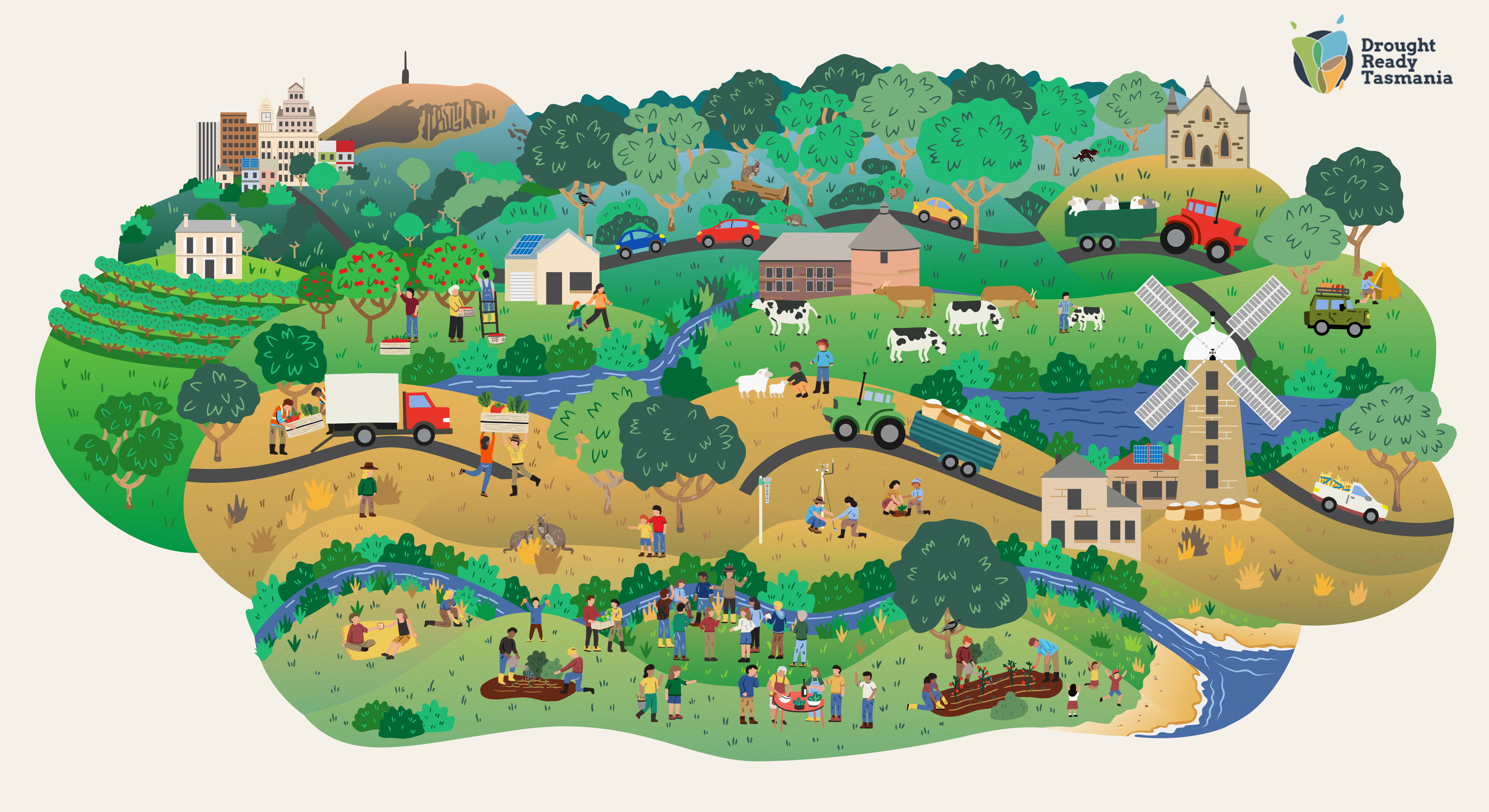Our Vision
The people, organisations and systems in Southern Tasmania all work together in a proactive and coordinated way to make our region strong so that we can thrive no matter the climate.
A strong, resilient region means:
Flourishing communities who understand and support each other
Prosperous local economies, where buisinesses thrive and provide jobs even when conditions are tough
Resilient landscapes, from the bush to the farm
A climate-conscious built environment that is deigned to be resilient, efficient and sustainable.


.jpg)

(1).jpg)

